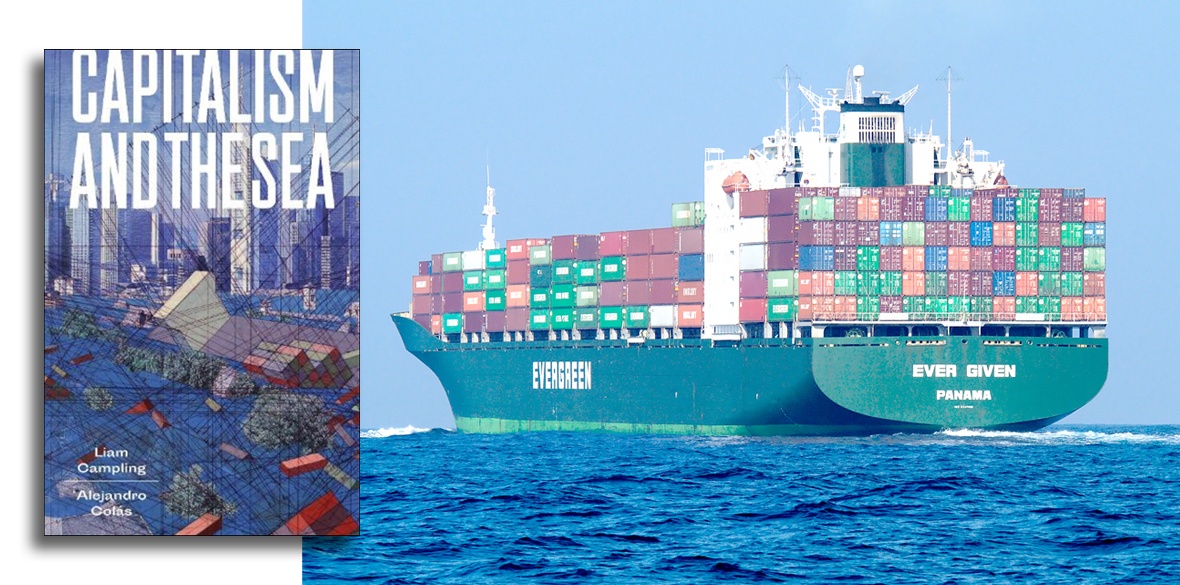This is the last article you can read this month
You can read more article this month
You can read more articles this month
Sorry your limit is up for this month
Reset on:
Please help support the Morning Star by subscribing here
EVER GIVEN’S grounding and blockage of the Suez Canal earlier this year emphasised the reality that capitalism’s global supply chains are dependent on the sea, on physical as well as financial capital, and on workers.
Operated by the Taiwanese Evergreen Marine Corporation the vessel is Japanese-owned, German managed, registered in Panama and insured in Britain. Crewed by just 26 Indian seafarers, the gigantic ship carried some $1bn of cargo stacked in more than 18,000 containers.
Seas have played an important role in human social and economic development and, as Marx declared, “Capital by its nature drives beyond every spatial barrier.”
All land masses are surrounded by water and as liquid barriers they were a challenge to early humans and had to be explored, mastered and exploited just as the land has been. That was, and remains, particularly the case with capitalism.
In Capitalism and the Sea, Liam Campling and Alejandro Colas trace the maritime interactions of capitalism from mercantilism and trade routes, competition and war, sources of food, minerals and energy to the repository of waste — and a carbon sink — the concealment of profit and the location of exploitative and often unregulated and racialised work. All are legitimised through the application of state power.
An oceanic journey through the political economy, ecology and geopolitics of the sea, the book traces the circulation of capital, its accumulation and the role of insurance and credit financialisation, governance, regulation and conflict — from when Britannia “ruled the waves” to the US’s current antics in the South China Sea.
The exploitation of maritime labour, the extraction of surplus value and seafarer resistance is investigated, along with the appropriation of the fish and seafood industries and logistics — the “annihilation of space by time” in capital’s drive for profit — from steam shipping and marine telegram cable networks to containerisation.
Murky offshore practices — from deregulated shell companies, tax havens, super yachts and flags of convenience, through the dumping of convicts and contaminants to the designation of marine protected areas as a new form of ecological imperialism — all come under scrutiny.
There’s a huge amount of detail in the book but once you’ve penetrated the occasionally abstruse, over-academicised literary style — “temporalities” and “spatialities” are in the mix — the overall narrative is relatively simple. The sea has been, and remains, a vital element in the development and functioning of capitalism.
That doesn’t go very far, in theory or in practice. and many would agree that the sea is part of what sustains capitalism as it impoverishes human society and lays waste to the planet.
Yet the authors present no particularly innovative proposals for change: their achievement is to assemble in a meticulously referenced book much material which will add considerably to the reader’s understanding of the relationship between capitalism and our “terraqueous” world.
Capitalism and the Sea: The Maritime Factor in the Making of the Modern World is published by Verso, £16. Alejandro Colas will be one of the panellists in the forthcoming series on Food and Agriculture organised by the Marx Memorial Library which starts on November 4, details: marx-memorial-library.org.uk










